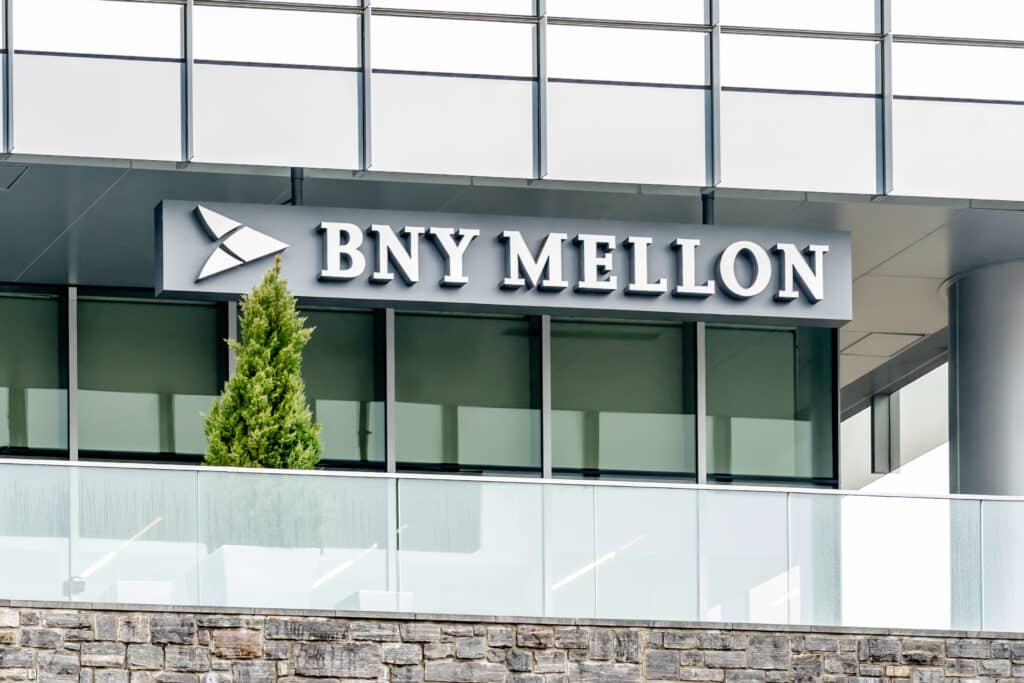|
Getting your Trinity Audio player ready...
|
The SEC granted BNY Mellon a “variance” from the stringent accounting requirements set forth in SAB 121, which mandates that banks holding cryptocurrencies for clients categorize these assets as liabilities on their balance sheets. This ruling opens the door for BNY Mellon to incorporate institutional crypto custody services—including Bitcoin—into its core business offerings.
Chris Land, general counsel for U.S. Senator Cynthia Lummis (R-WY), highlighted the significance of this decision, stating, “This marks a watershed moment for the bank and the whole crypto industry.” By easing the regulatory burden, the SEC has paved the way for a new era where traditional financial institutions can actively engage in cryptocurrency custody without the crippling financial risks associated with SAB 121.
Unlocking New Opportunities For Traditional Banks
BNY Mellon’s exemption could be a pivotal turning point for traditional banks looking to dip their toes into the crypto market. The decision not only heralds a new era for BNY Mellon but also serves as an invitation for other financial institutions to explore digital asset services. By lowering the barriers to entry, the SEC’s ruling may stimulate increased institutional participation in the crypto market, enhancing the overall acceptance of digital assets as legitimate investment vehicles.
This move indicates a maturing crypto market where digital assets are increasingly recognized as viable options for investment. As more traditional banks consider entering this arena, we could see a seismic shift in how cryptocurrencies are integrated into mainstream finance.
BNY Mellon’s Commitment to Blockchain Innovation
This isn’t BNY Mellon’s first venture into the crypto and blockchain domain. The bank previously collaborated with Deutsche Bank on a Swift-led initiative aimed at enhancing the interoperability of electronic Bills of Lading (eBL) through blockchain technology. This project underscored BNY Mellon’s ongoing commitment to leveraging blockchain to improve operational efficiencies within traditional financial systems.
Such collaborations highlight the bank’s proactive stance in embracing digital innovation, further solidifying its position as a leader in integrating crypto and blockchain solutions into conventional banking frameworks.
The Competitive Landscape
As BNY Mellon makes strides in the cryptocurrency custody sector, it faces competition from other major players like MicroStrategy, which recently boosted its Bitcoin holdings to an impressive 252,220 BTC. This surge emphasizes the growing institutional interest in cryptocurrencies, a trend that BNY Mellon is now well-positioned to capitalize on.
In conclusion, BNY Mellon’s exemption from SAB 121 not only marks a significant milestone for the bank but also signals a transformative moment for the cryptocurrency industry as a whole. As traditional financial institutions begin to embrace the digital asset landscape, the future of cryptocurrency custody looks brighter than ever. With BNY Mellon leading the charge, we can expect to see a more integrated and accepting approach to digital assets in the world of finance.
Disclaimer: The information in this article is for general purposes only and does not constitute financial advice. The author’s views are personal and may not reflect the views of Chain Affairs. Before making any investment decisions, you should always conduct your own research. Chain Affairs is not responsible for any financial losses.
A lifelong learner with a thirst for knowledge, I am constantly seeking to understand the intricacies of the crypto world. Through my writing, I aim to share my insights and perspectives on the latest developments in the industry. I believe that crypto has the potential to create a more inclusive and equitable financial system, and I am committed to using my writing to promote its positive impact on the world.




